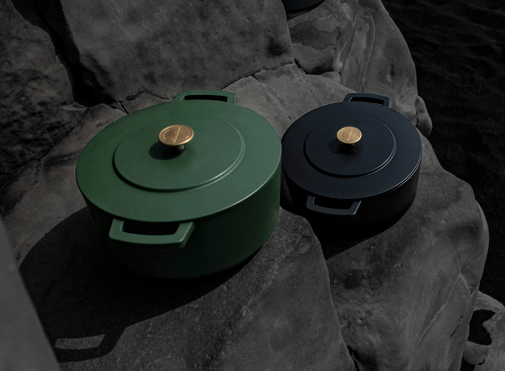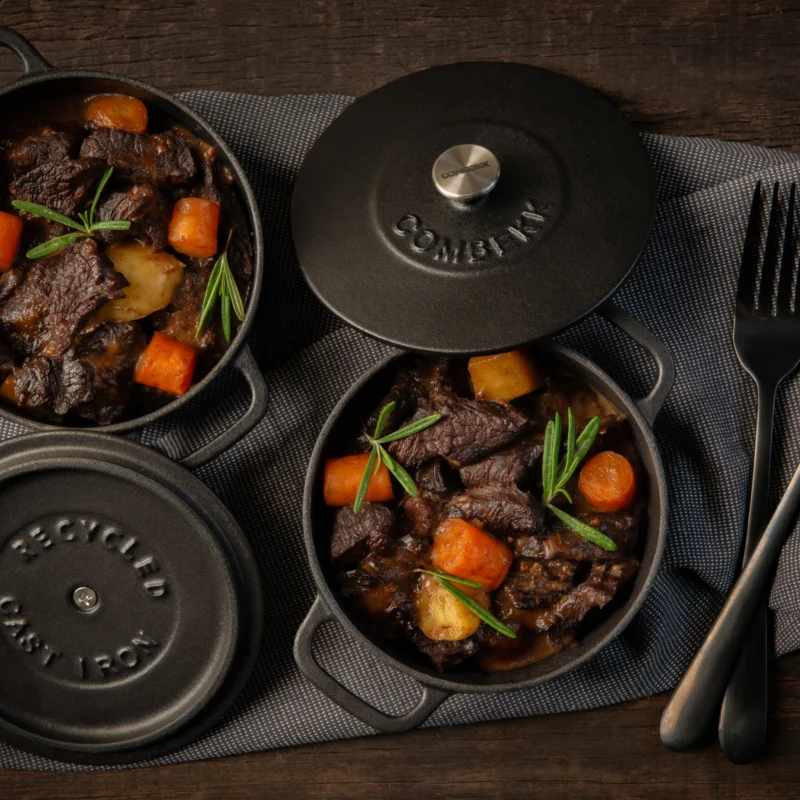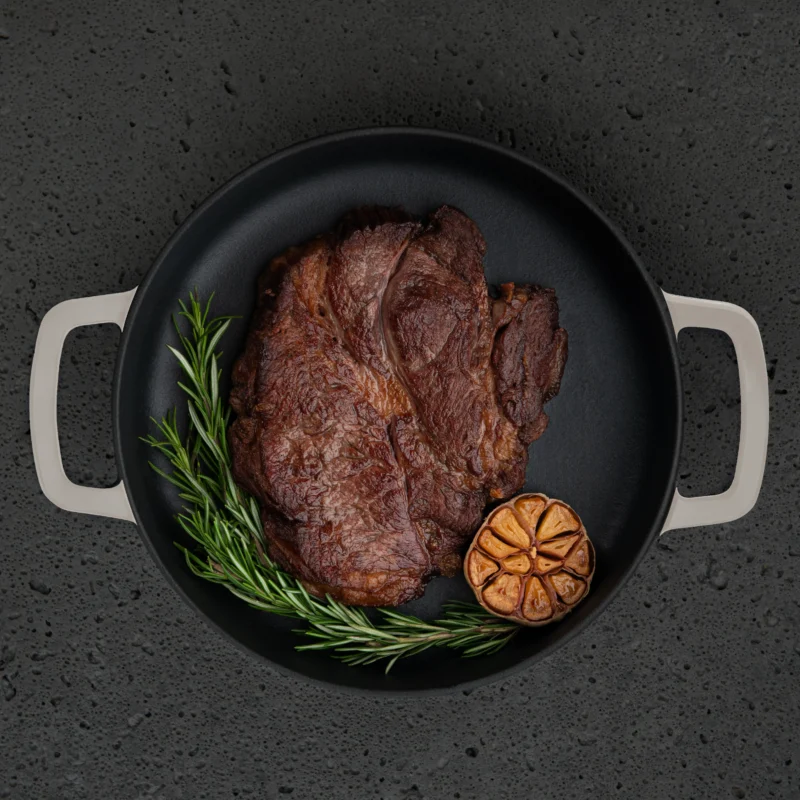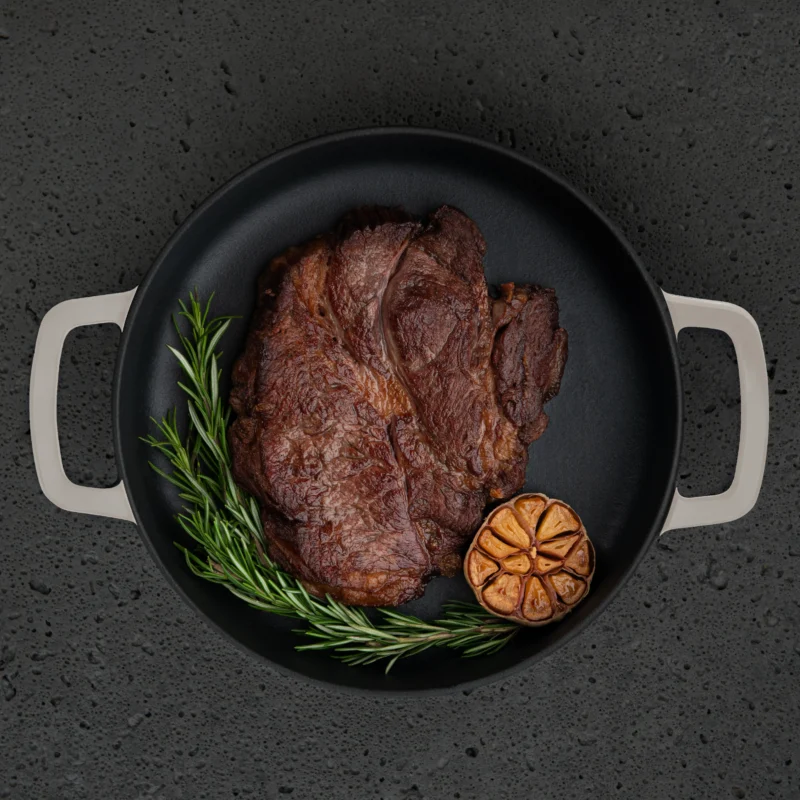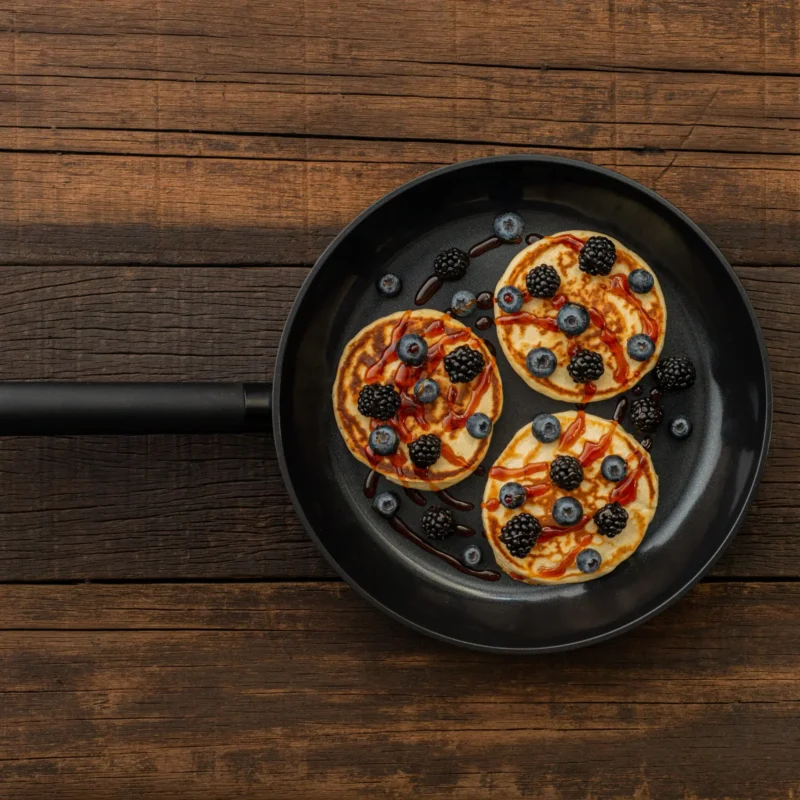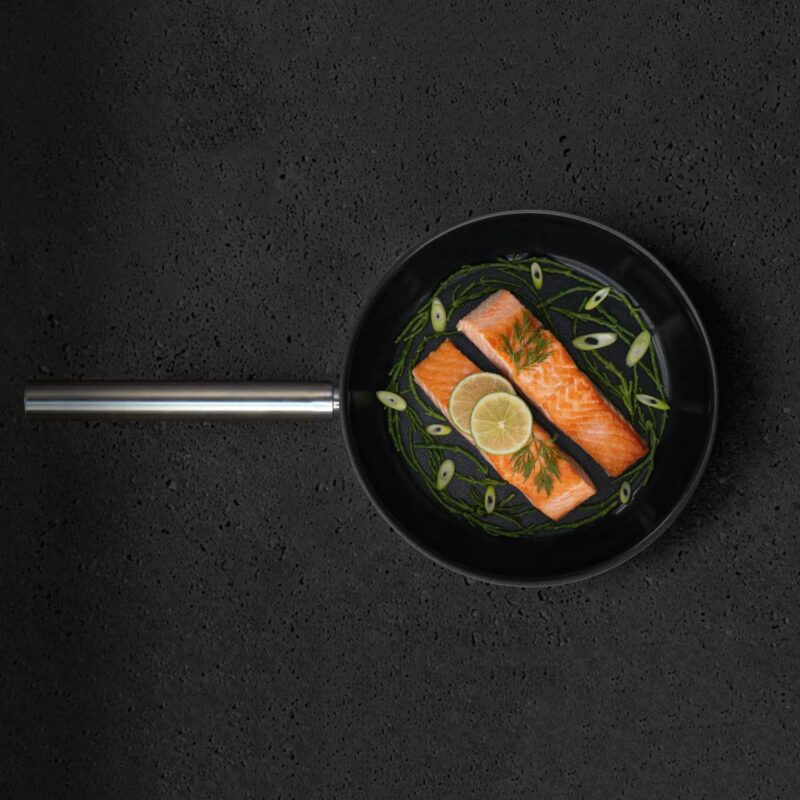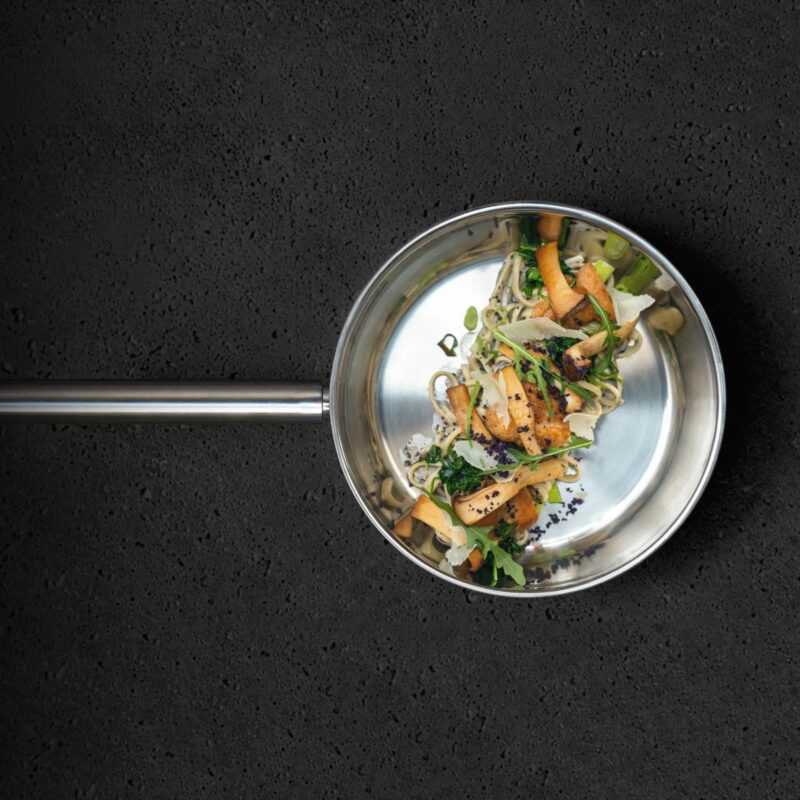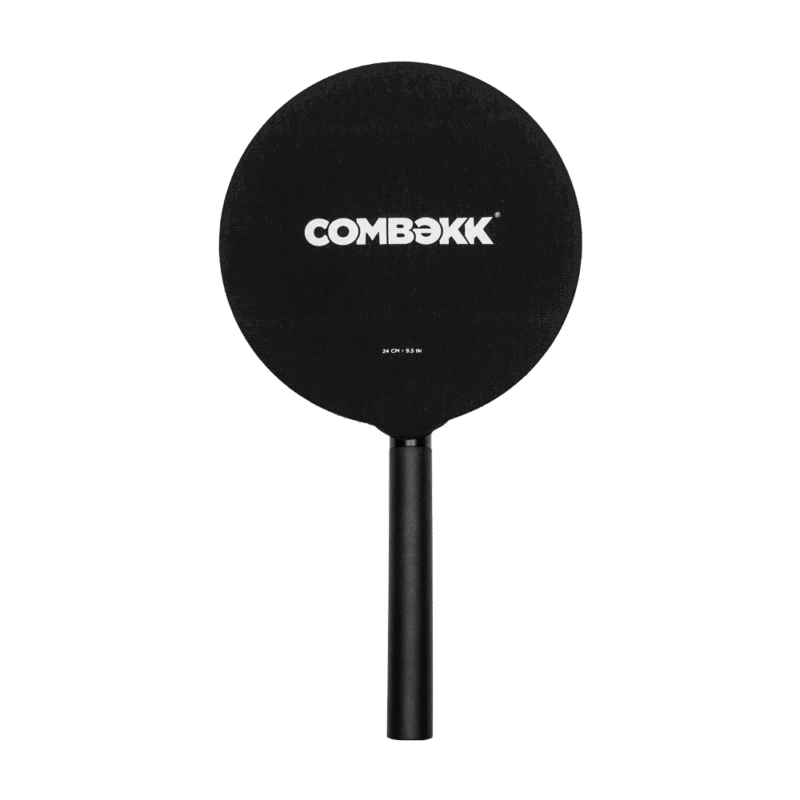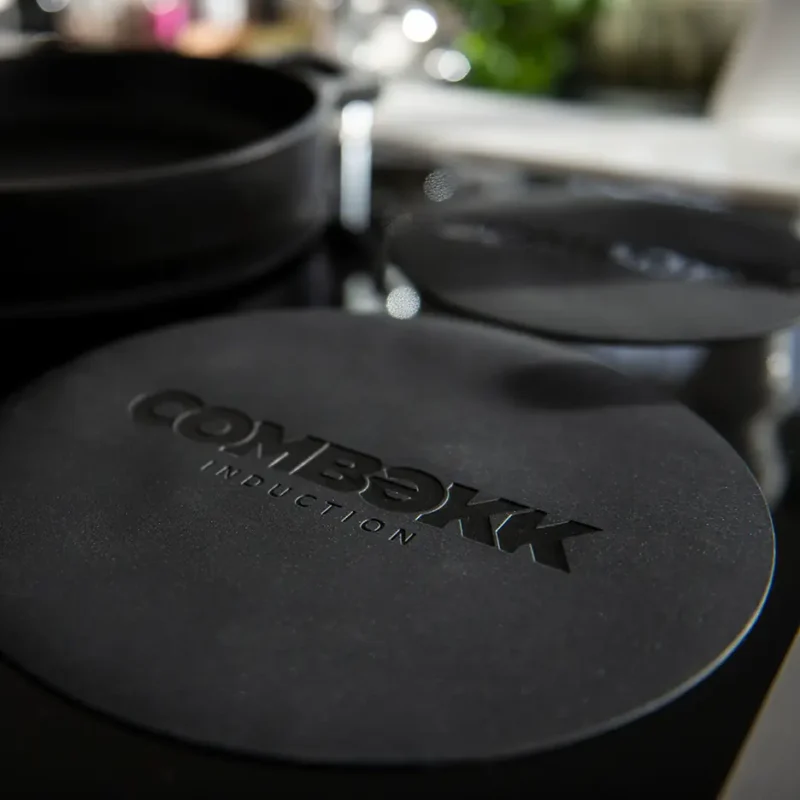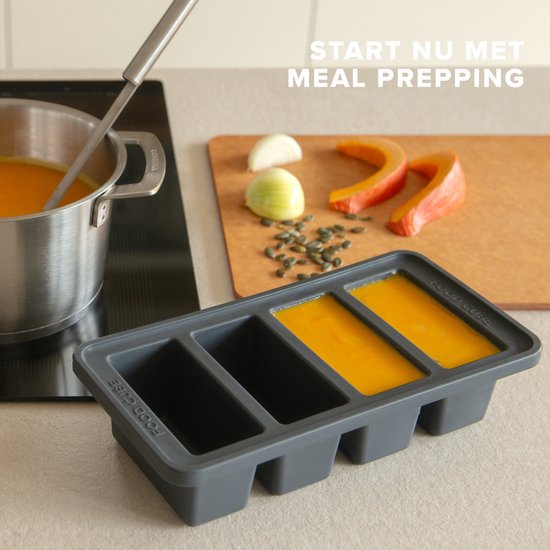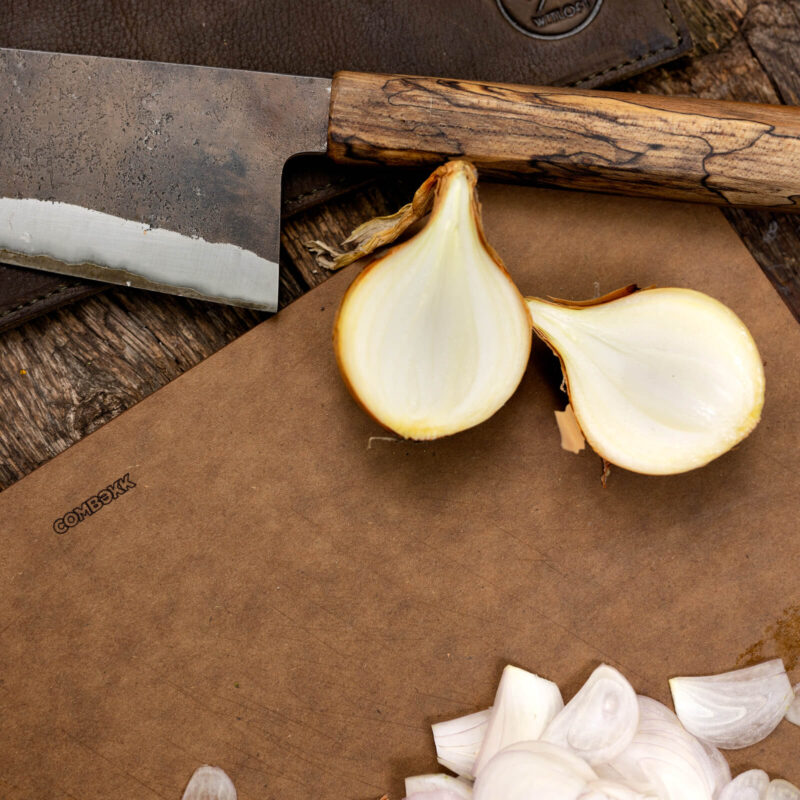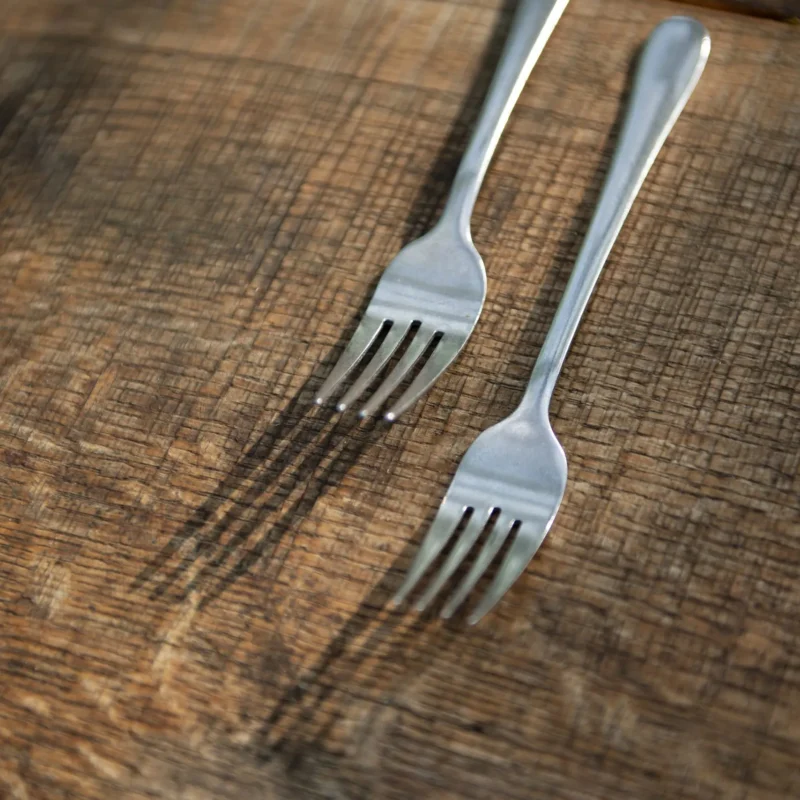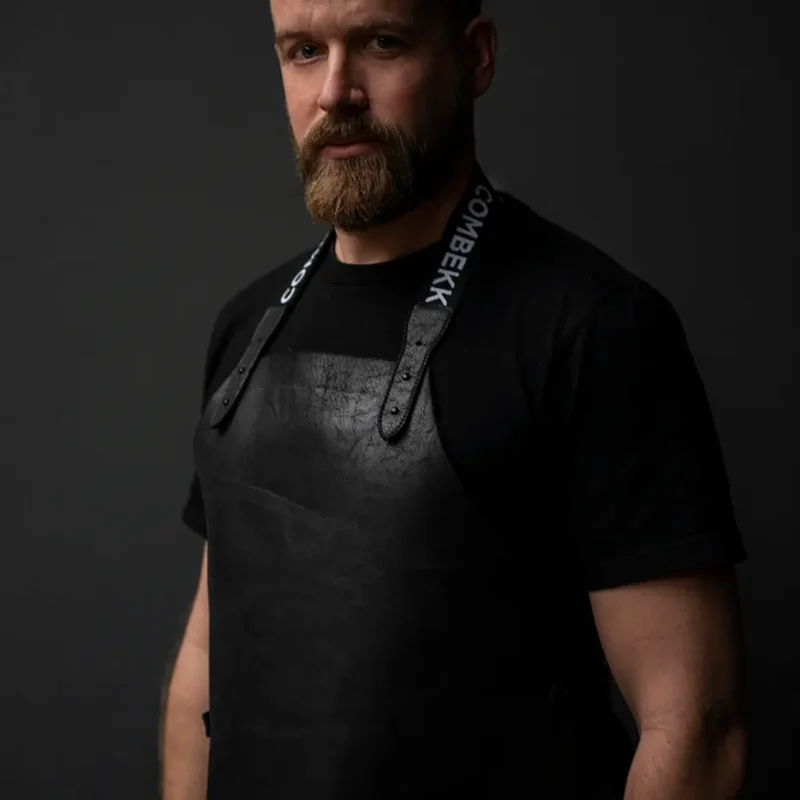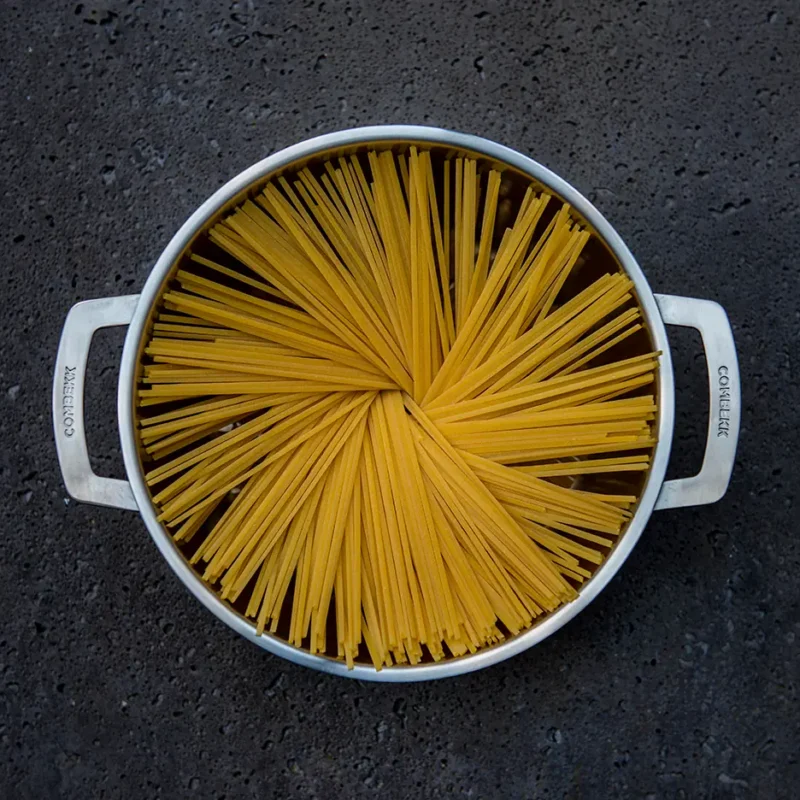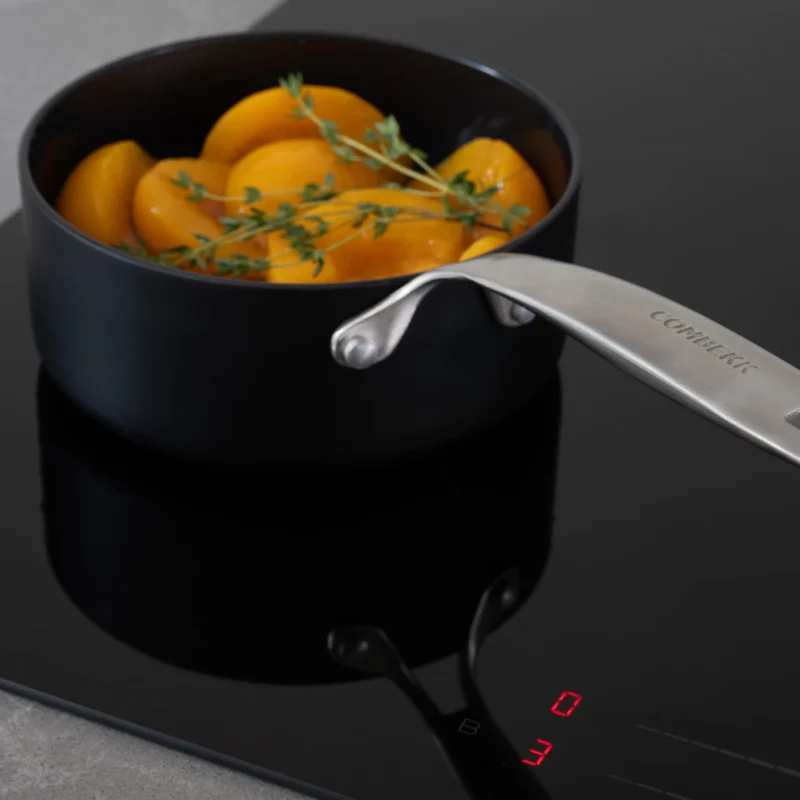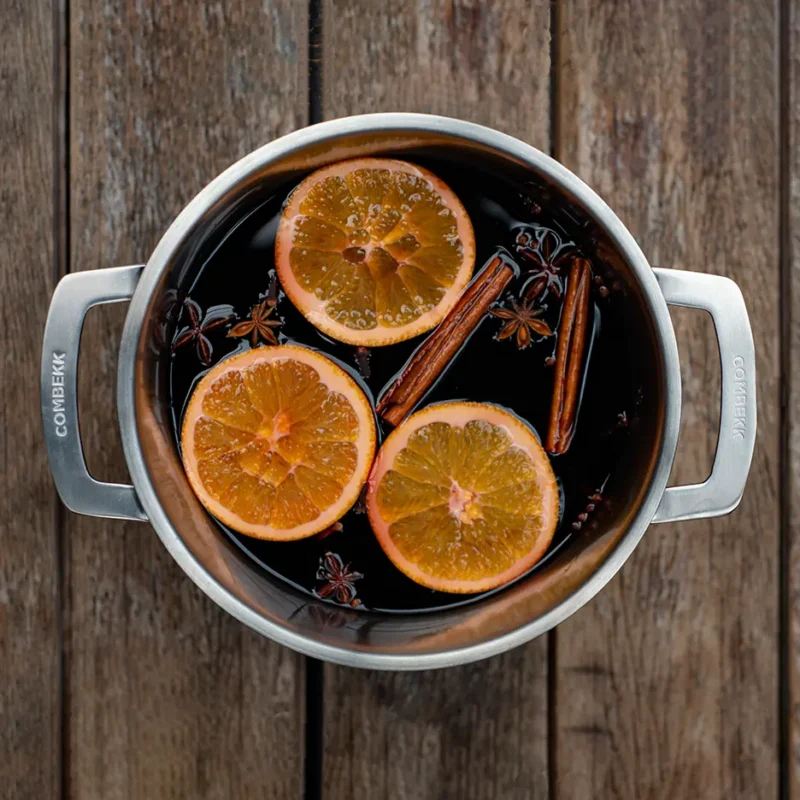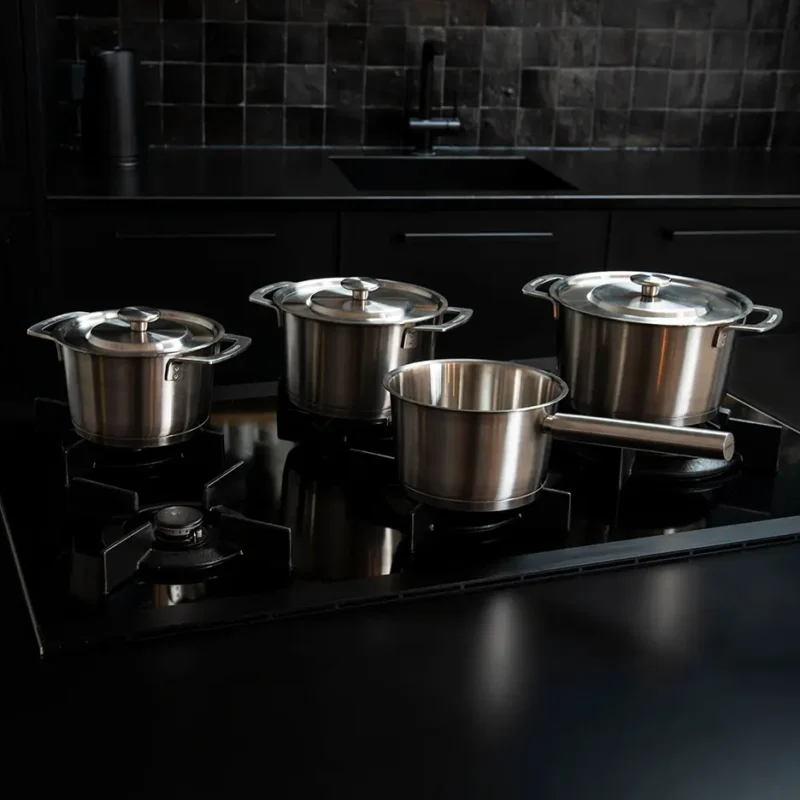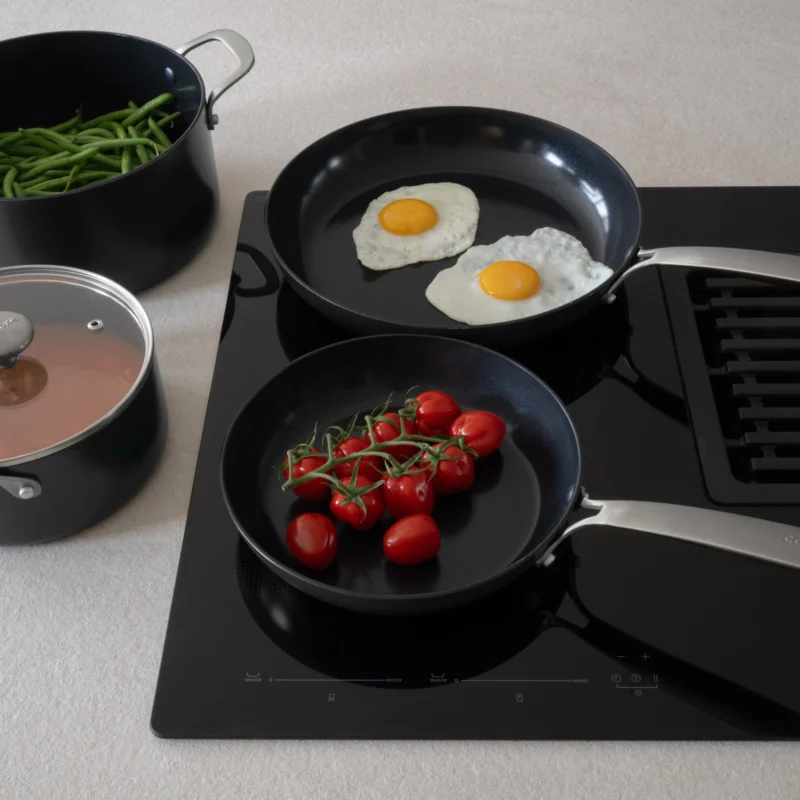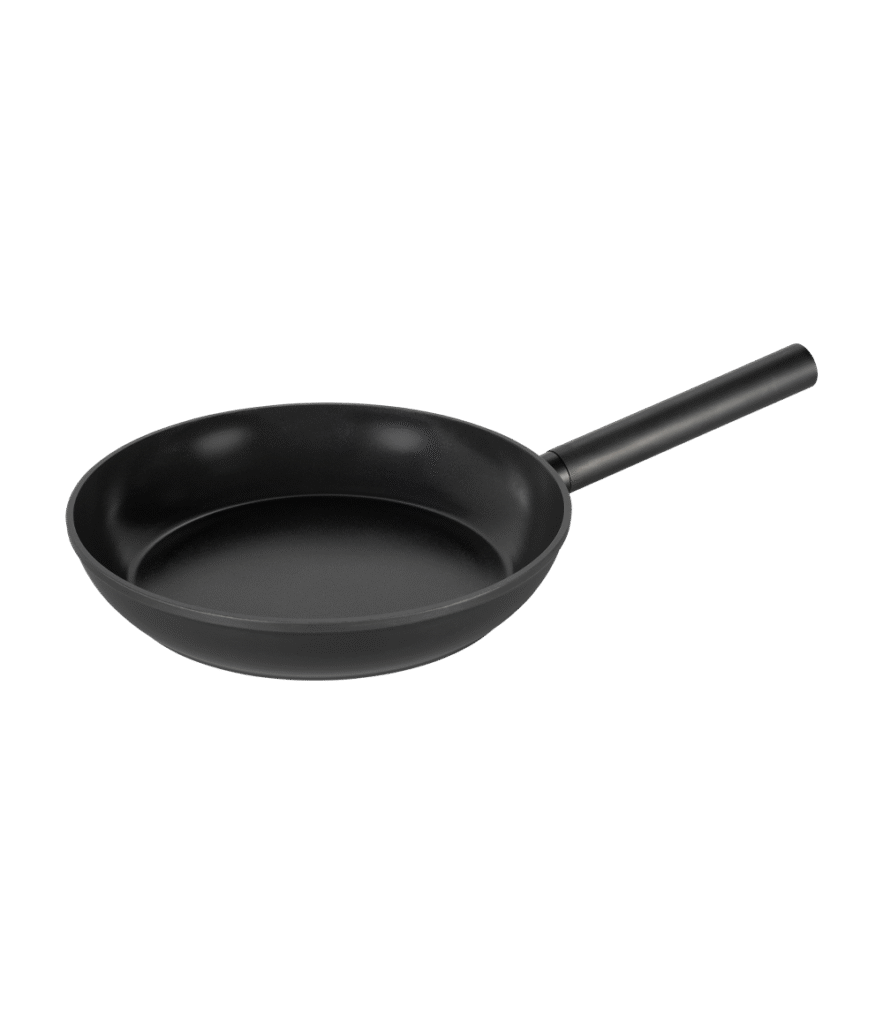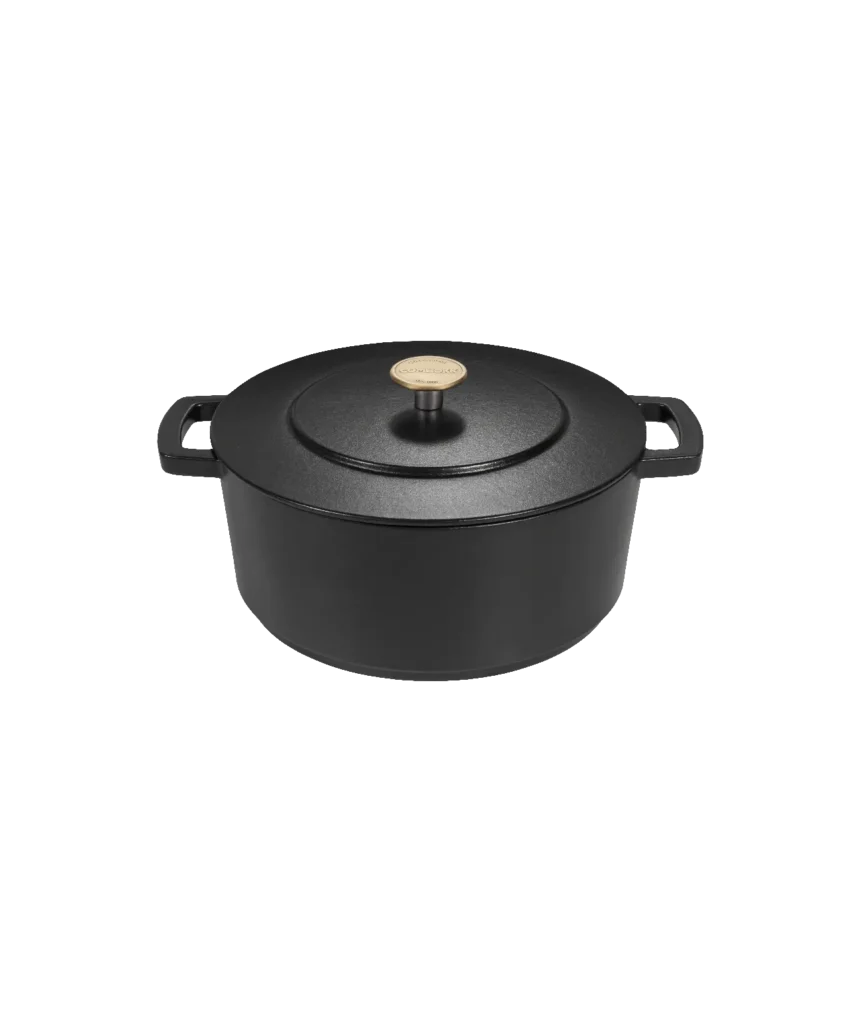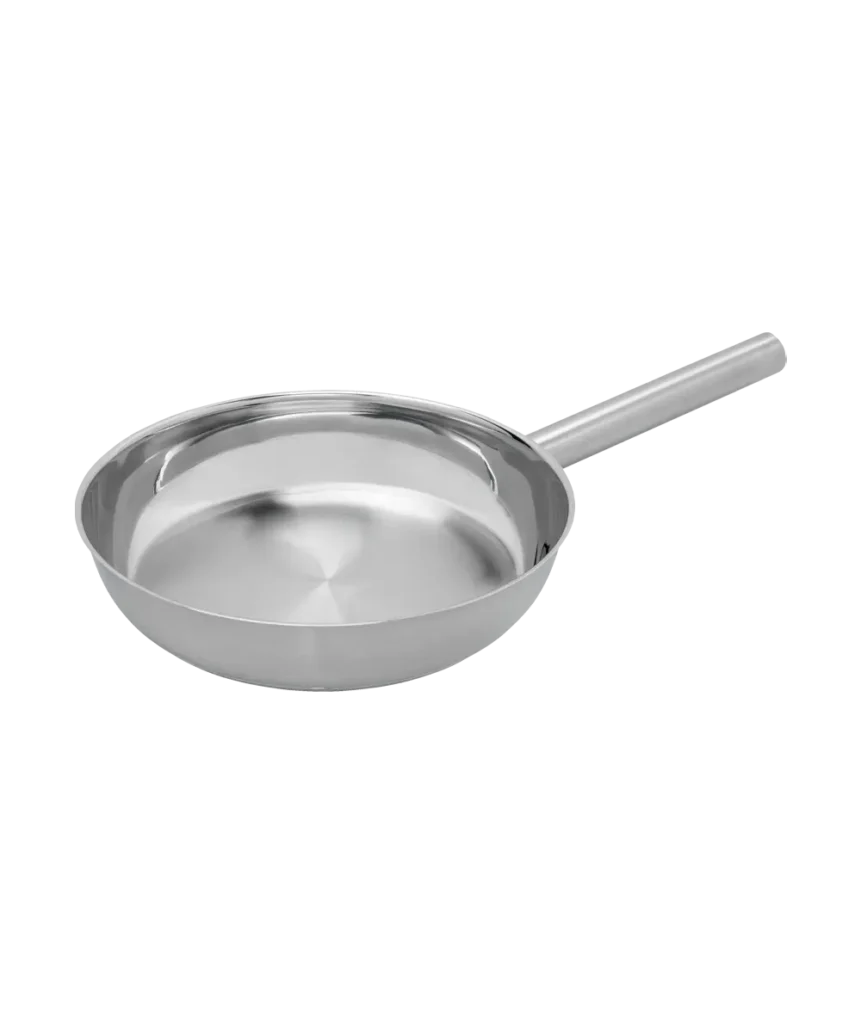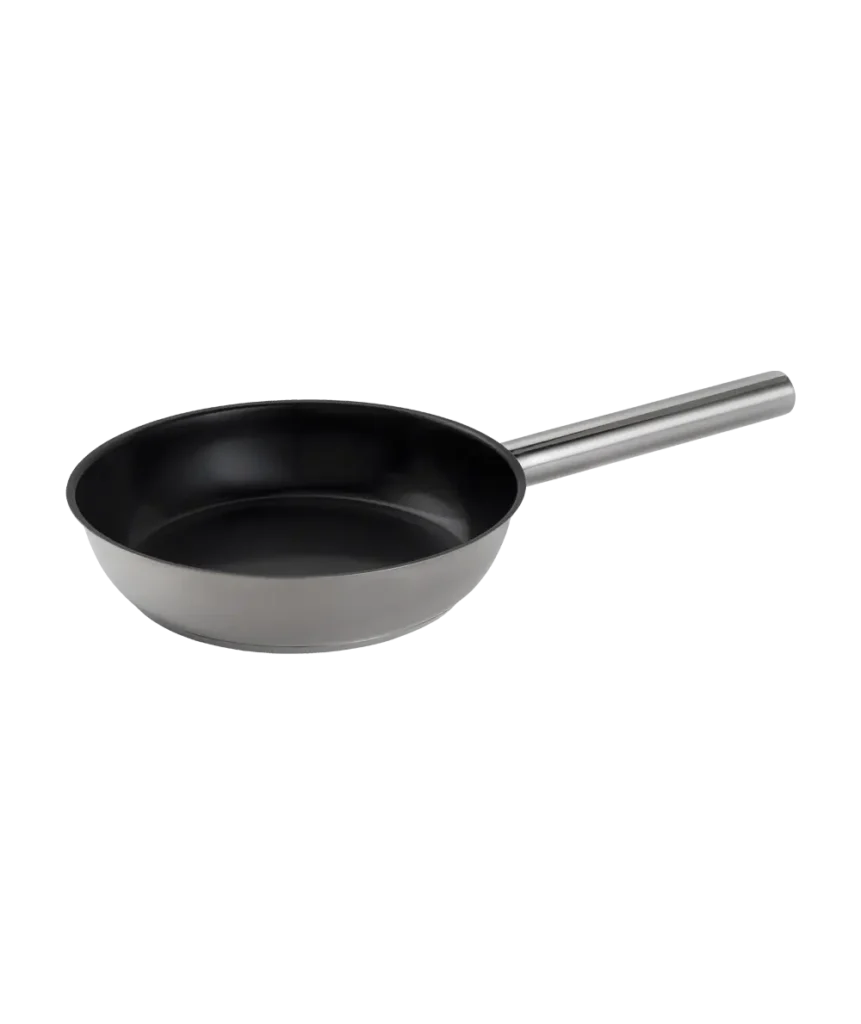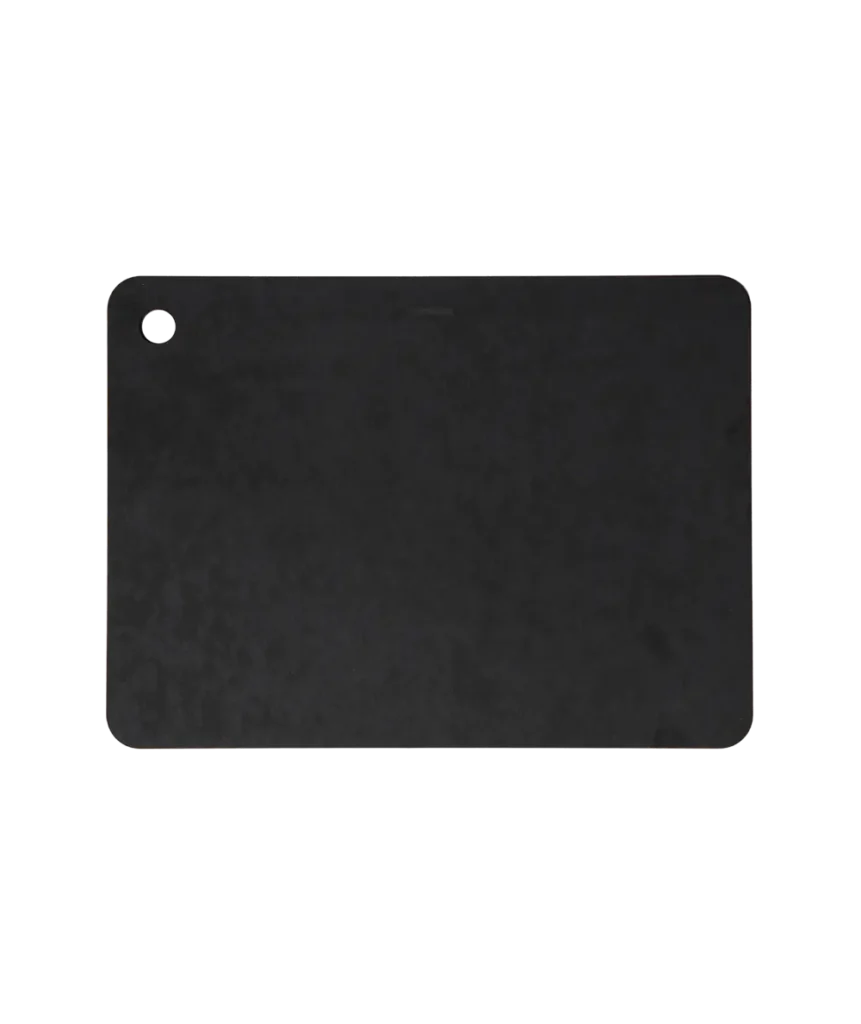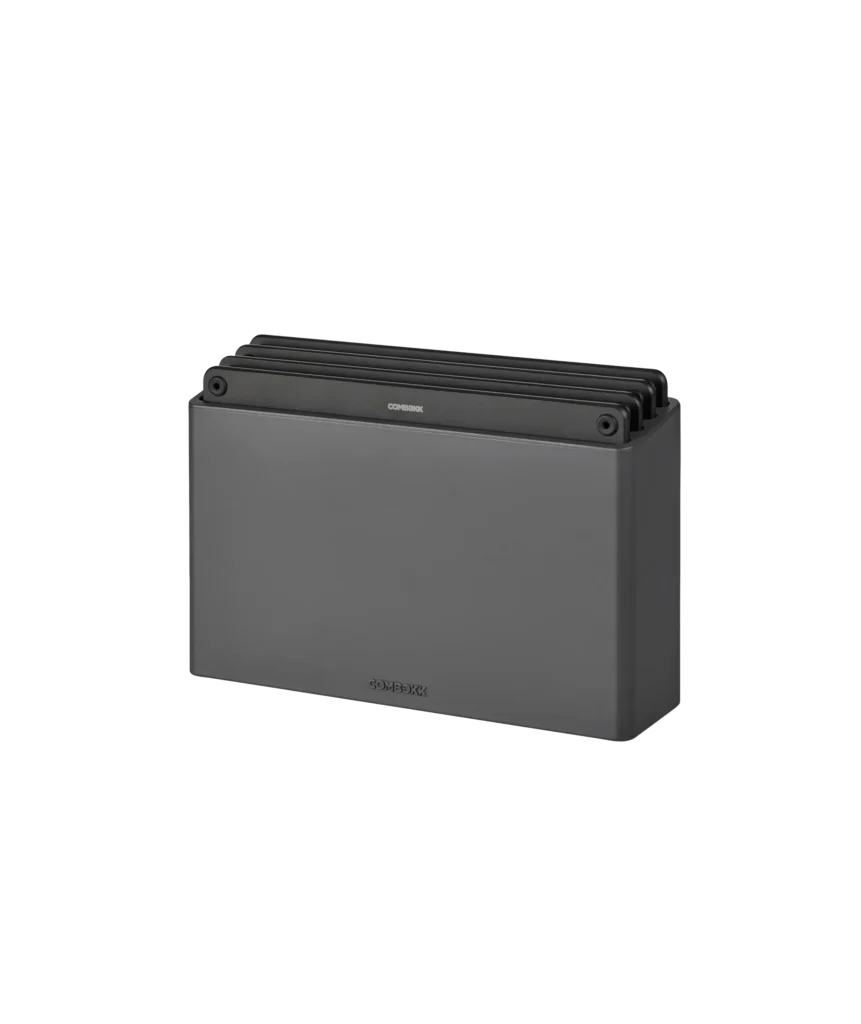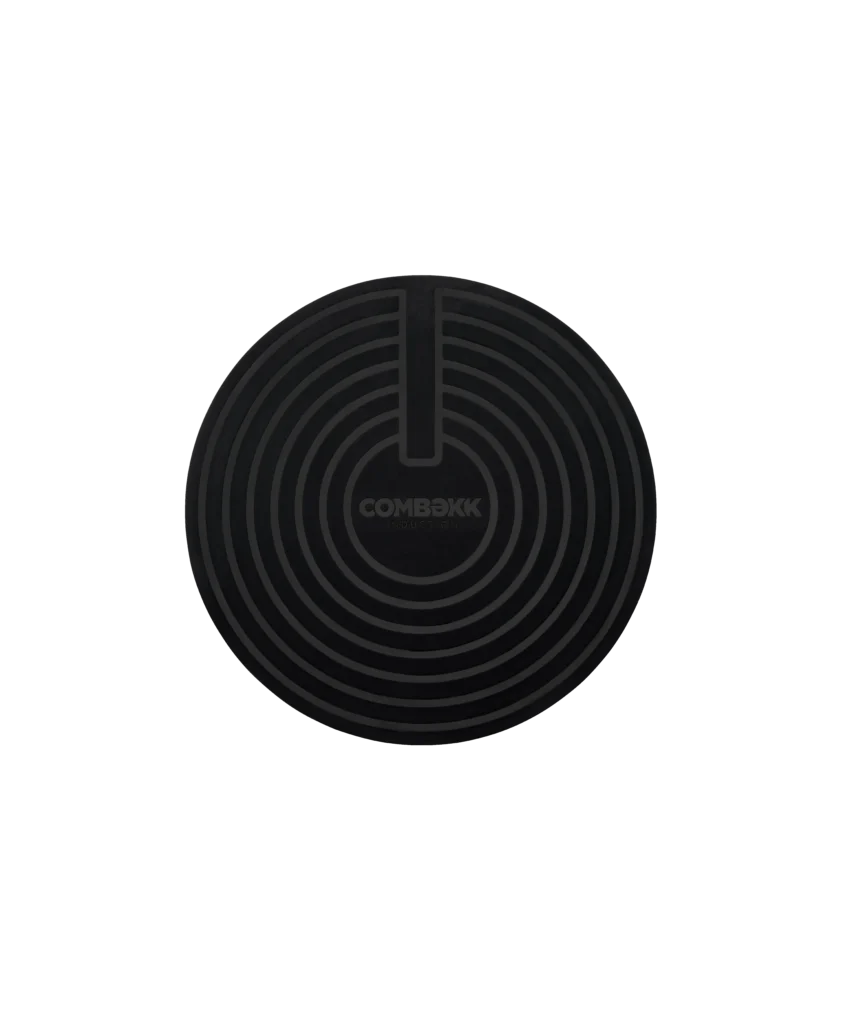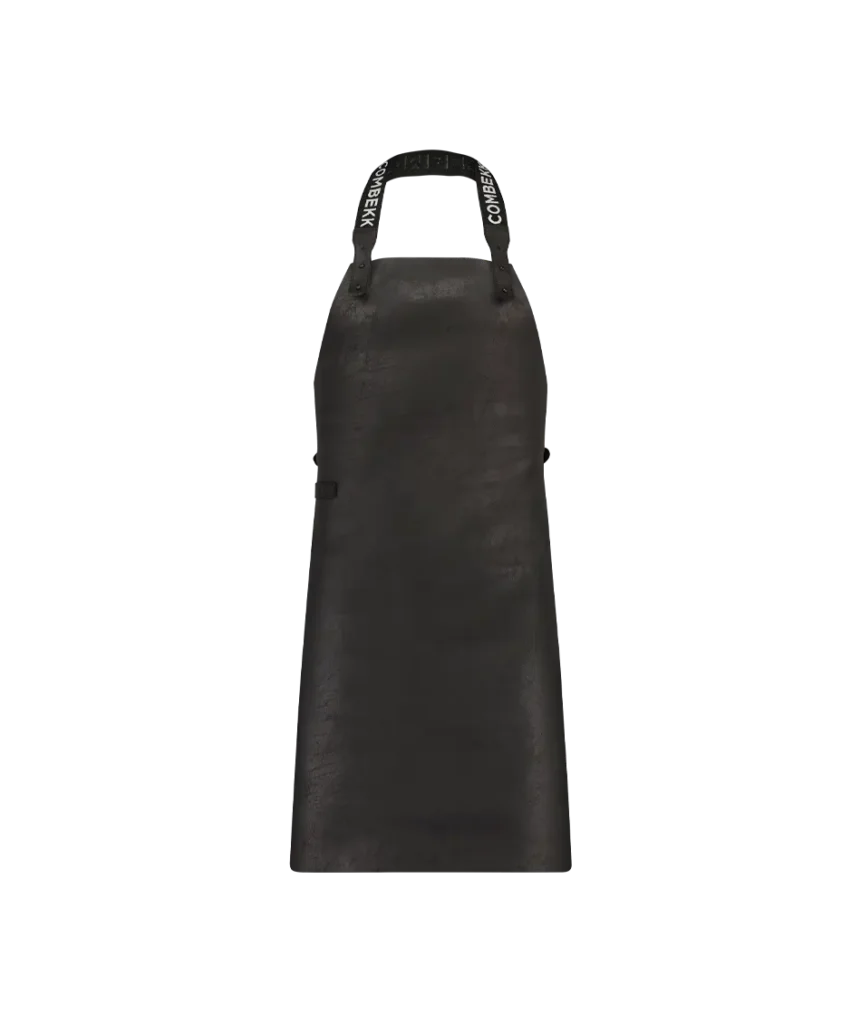Usage & maintenance
Aluminium ceramic coating
Preparing
Take the pan out of the packaging and start right away. We recommend a thorough wash to remove all dust and particles. Use enough oil, butter or other liquid when you start cooking. Prevent heating a dry cooking pot.
Cleaning
Best to clean it with water and a soft brush or sponge. Try to avoid soap too often, rather fill it with water for a night. All dirt will vanish.

Utensils
Slowly increase the heat. This allows the pan to warm up gradually and distribute the heat perfectly. Use soft tools made from wood, silicon, or other soft materials. Metal tools could damage the (very strong) enamel layer.
Storage
Important to completely dry your Dutch Oven before storage. Try not to stack your Dutch Oven on top of other pans to prevent chipping.
Cast iron
Preparing
Take the pan out of the packaging and start right away. We recommend a thorough wash to remove all dust and particles. Use enough oil, butter or other liquid when you start cooking. Prevent heating a dry cooking pot.
Cleaning
Best to clean it with water and a soft brush or sponge. Try to avoid soap too often, rather fill it with water for a night. All dirt will vanish.
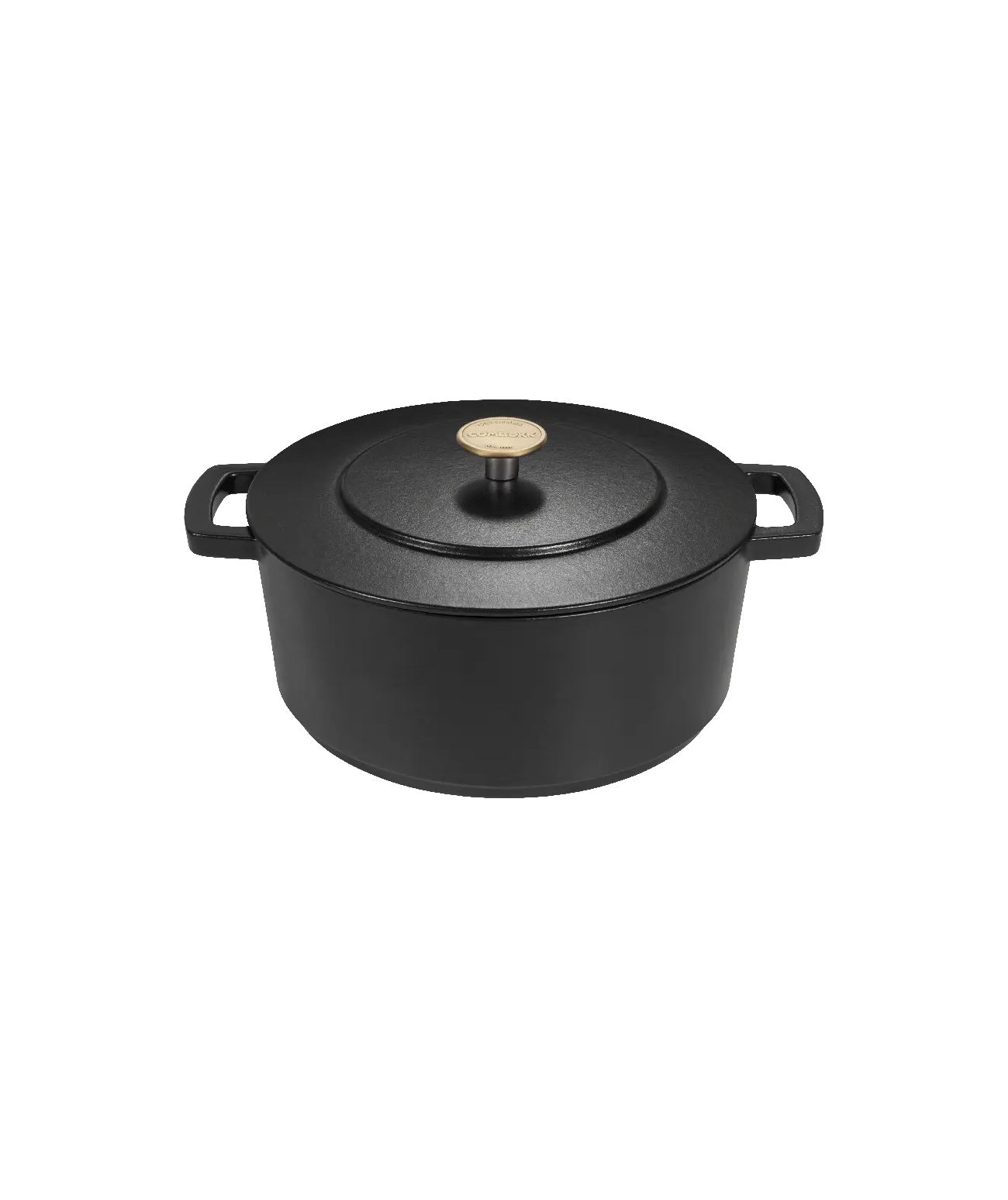
Utensils
Slowly increase the heat. This allows the pan to warm up gradually and distribute the heat perfectly. Use soft tools made from wood, silicon, or other soft materials. Metal tools could damage the (very strong) enamel layer.
Storage
Important to completely dry your Dutch Oven before storage. Try not to stack your Dutch Oven on top of other pans to prevent chipping.
Stainless steel
Preparing
Our recycled stainless steel cooking pots and pans are ready to use. We recommend a thorough wash to remove all dust and particles.
Cleaning
Stainless steel can get really hot, which means the food you cook, and fry can get hot too. To clean the pots, rub them with a sponge and soap. Because there’s no coating, you can rub and rub until all dirt has vanished.
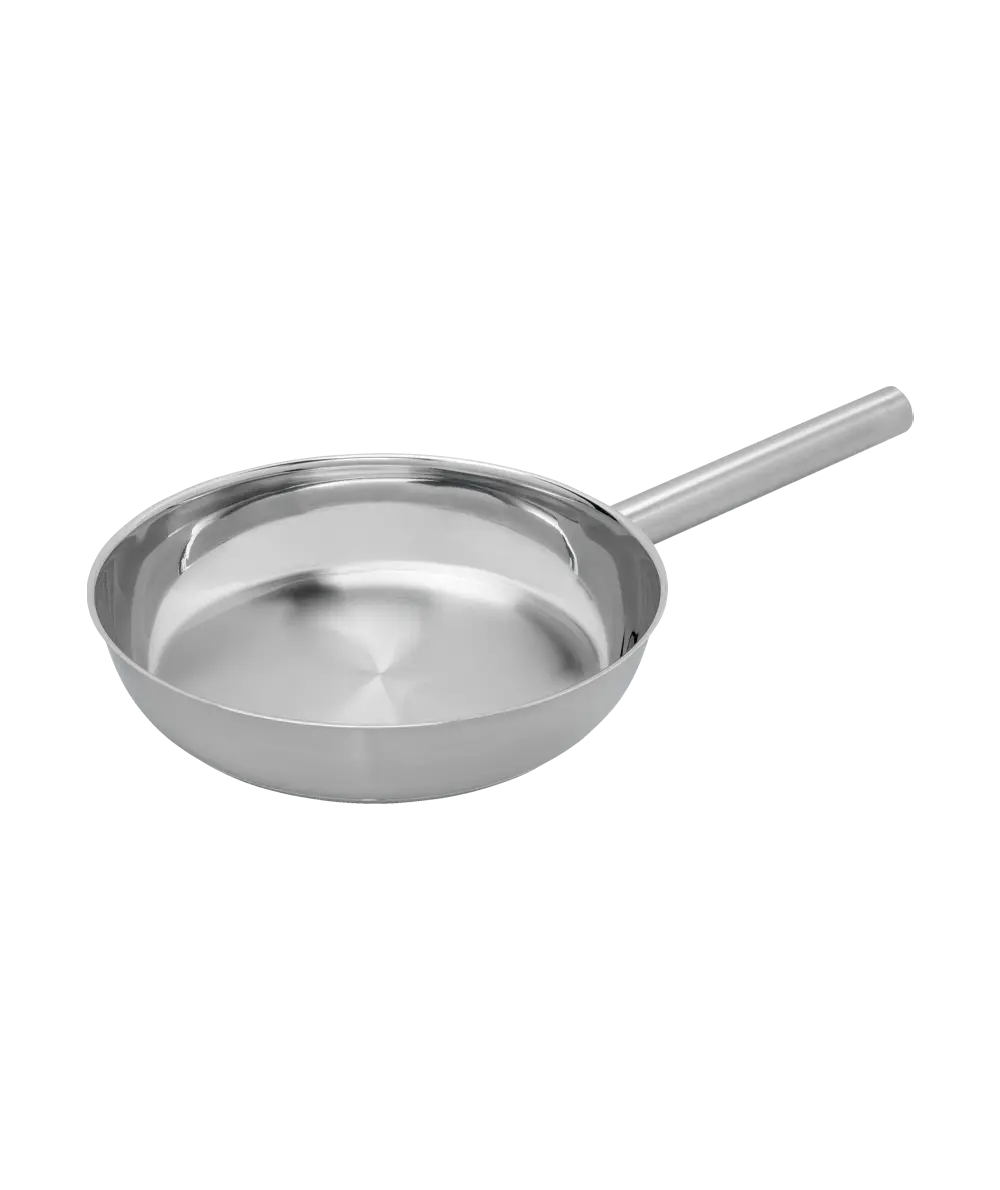
Utensils
We recommend soft utensils like wood or silicone utensils, but for the stainless-steel range, you could also use steel or stainless-steel utensils for cooking.
Storage
You can easily stack the cooking pots and place the saucepan on top! The design is space-saving. Stack & store!
Stainless steel ceramic coating
Preparing
After you remove the pan from the packaging, do a thorough wash to remove all the dust and particles. Use paper towels or a clean dish towel to thoroughly dry the pan after washing and rinsing it.
Cleaning
A small amount of butter or oil is all that’s needed to keep food from sticking. We recommend not using nonstick cooking sprays because it can lead to a build-up of residue and the added ingredients can damage the pan. While cooking, it is best to use cookware materials like, wood, silicone, plastic, or nylon spoons and spatulas are good choices to use for cooking.
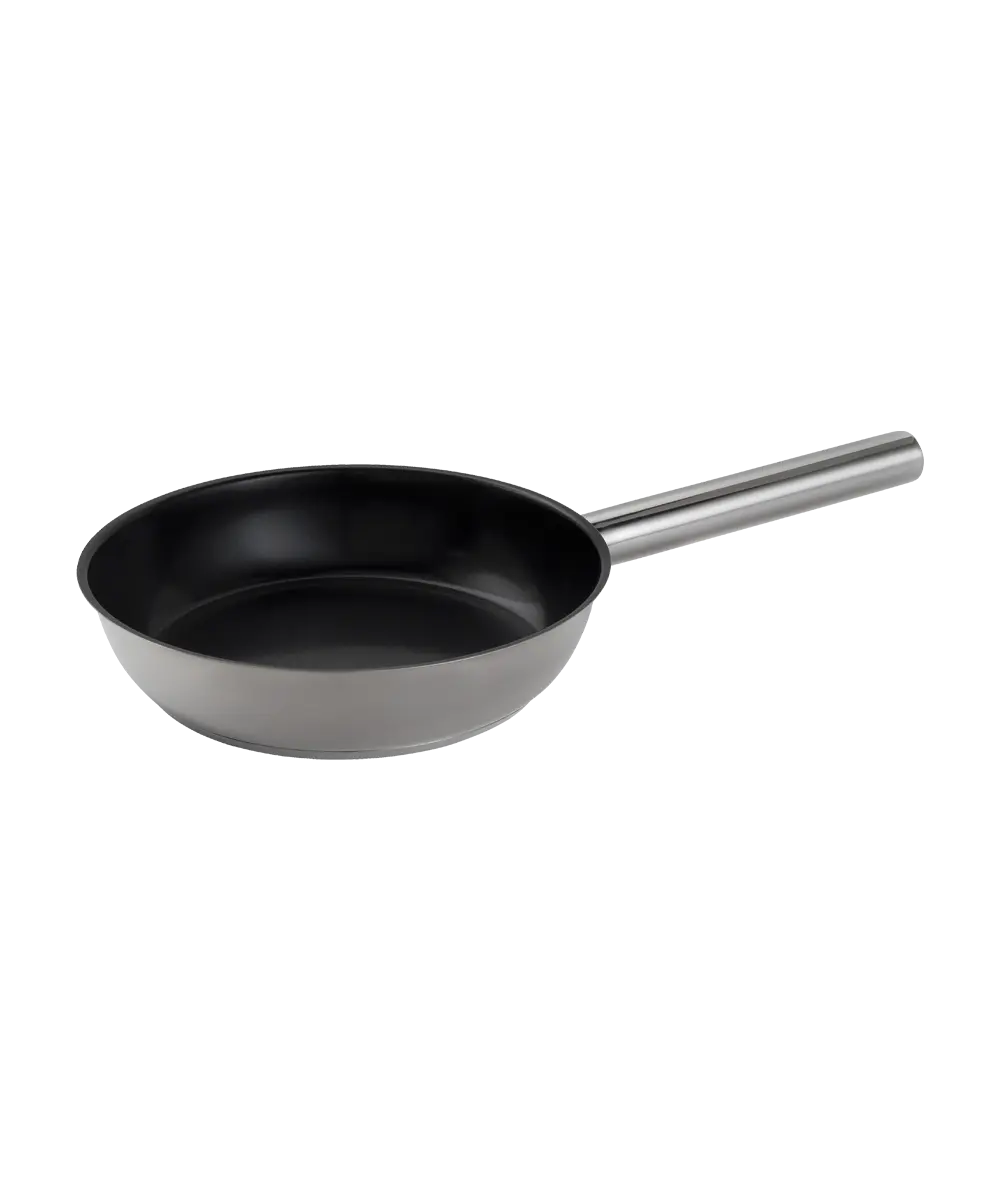
Utensils
A small amount of butter or oil is all that’s needed to keep food from sticking. We recommend not using nonstick cooking sprays because it can lead to a build-up of residue and the added ingredients can damage the pan. While cooking, it is best to use cookware materials like, wood, silicone, plastic, or nylon spoons and spatulas are good choices to use for cooking.
Storage
Store ceramic coated pans away from other pots and pans to avoid damage. Even storing ceramic pans on top of other ceramic pans can cause scratches and damage to the coating. Ideally, you should store your ceramic cookware hanging on a hook or on a shelf by itself. If space is an issue, try placing a napkin, small dishcloth, or a specially-made pot protector between pans while nesting.
Recycled paper
Preparing
Take the wrap around the cutting board and wash it with water to clean of dust.
Cleaning
You can wash the cutting board by hand or put it in the dishwasher. The board will not absorb liquids
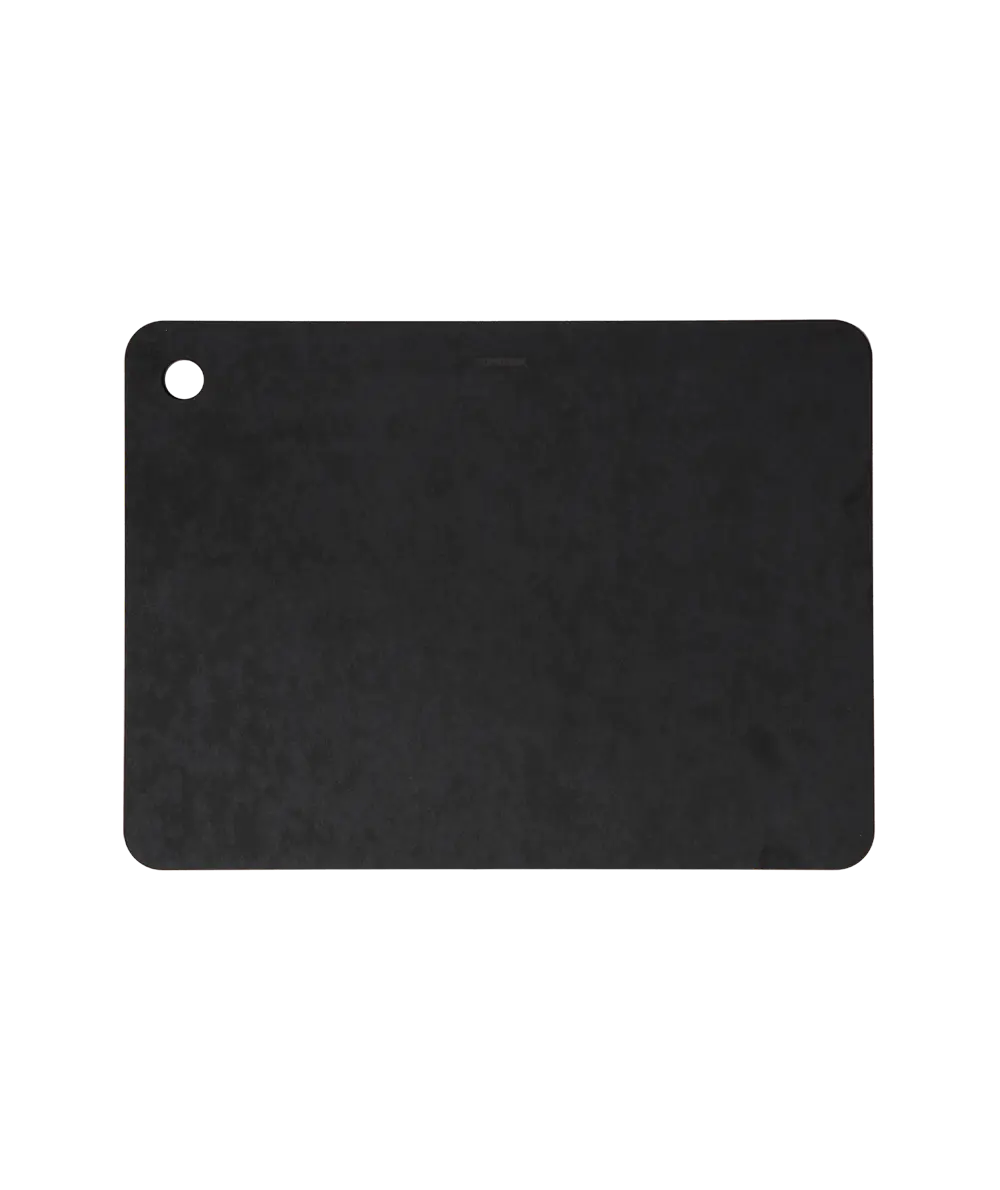
Utensils
Superstrong, steady and smooth cutting boards that are also kind for your knives. Therefore, it is possible that your knives leave some marks on the board, this is to protect your precious knives.
Storage
Make sure the cutting board does not shift too much in the drawer otherwise, it may get scratched.
Wood fibre
Preparing
Get the cutting boards out of the holder and wash it with water to clean of dust.
Cleaning
This cutting board is dishwasher safe and easy to clean. Its non-porous surface resists liquids, odors and stains, keeping it fresh, hygienic and ready for daily use.
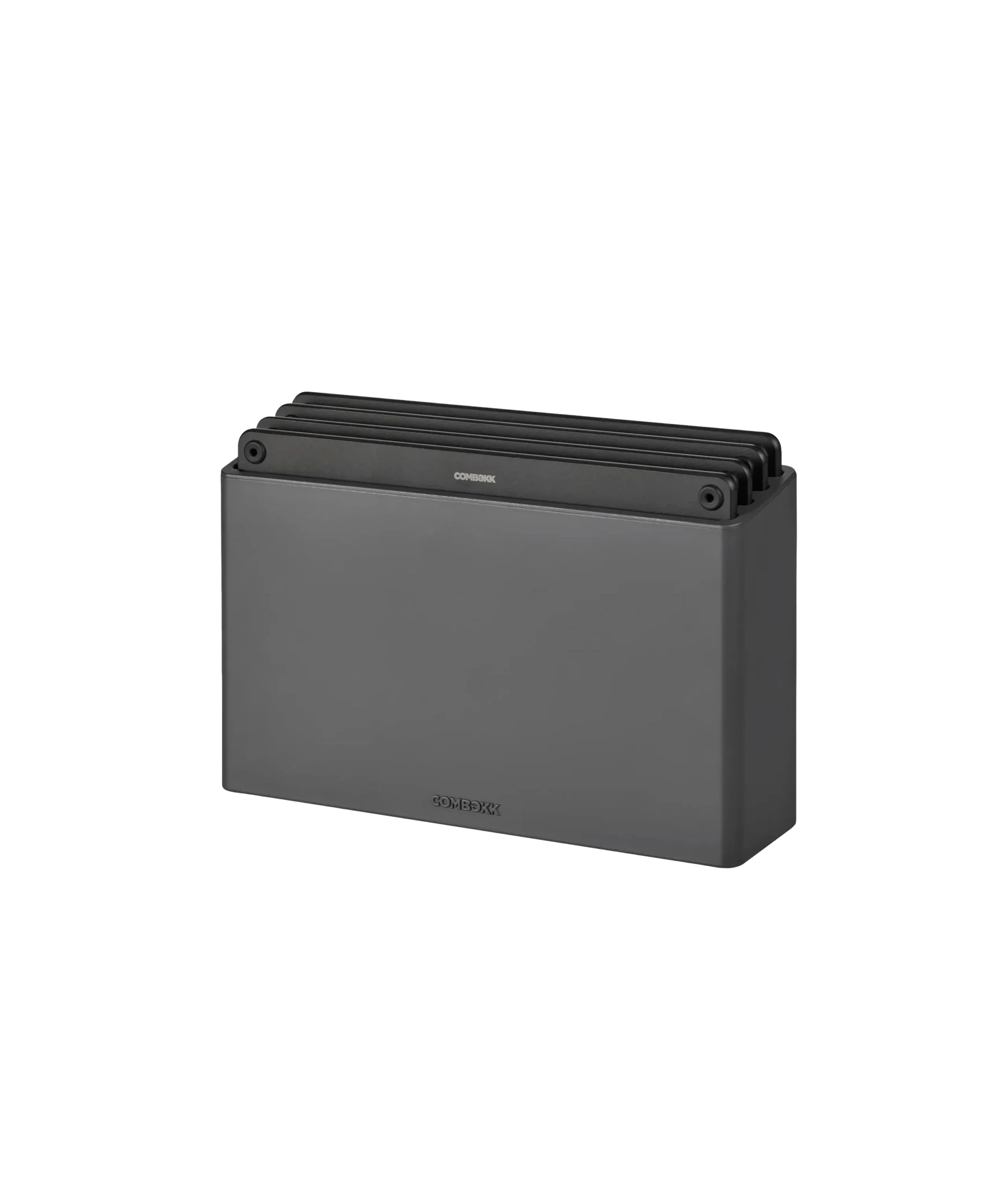
Utensils
Ultra-durable, stable, and smooth cutting boards that keep your knives sharp. The gentle surface may show light knife marks over time, a sign it’s protecting your blades, not wearing them down.
Storage
Thanks to the clever airflow design and silicone non-slip feet, these cutting boards can be neatly stored while staying stable and protected, preventing scratches on your countertop and keeping them fresh between uses.
Silicone
Preparing
Get the product out of the package and rinse it with water to clean of the dust.
Cleaning
The product can be put in the dishwasher for easy cleaning.
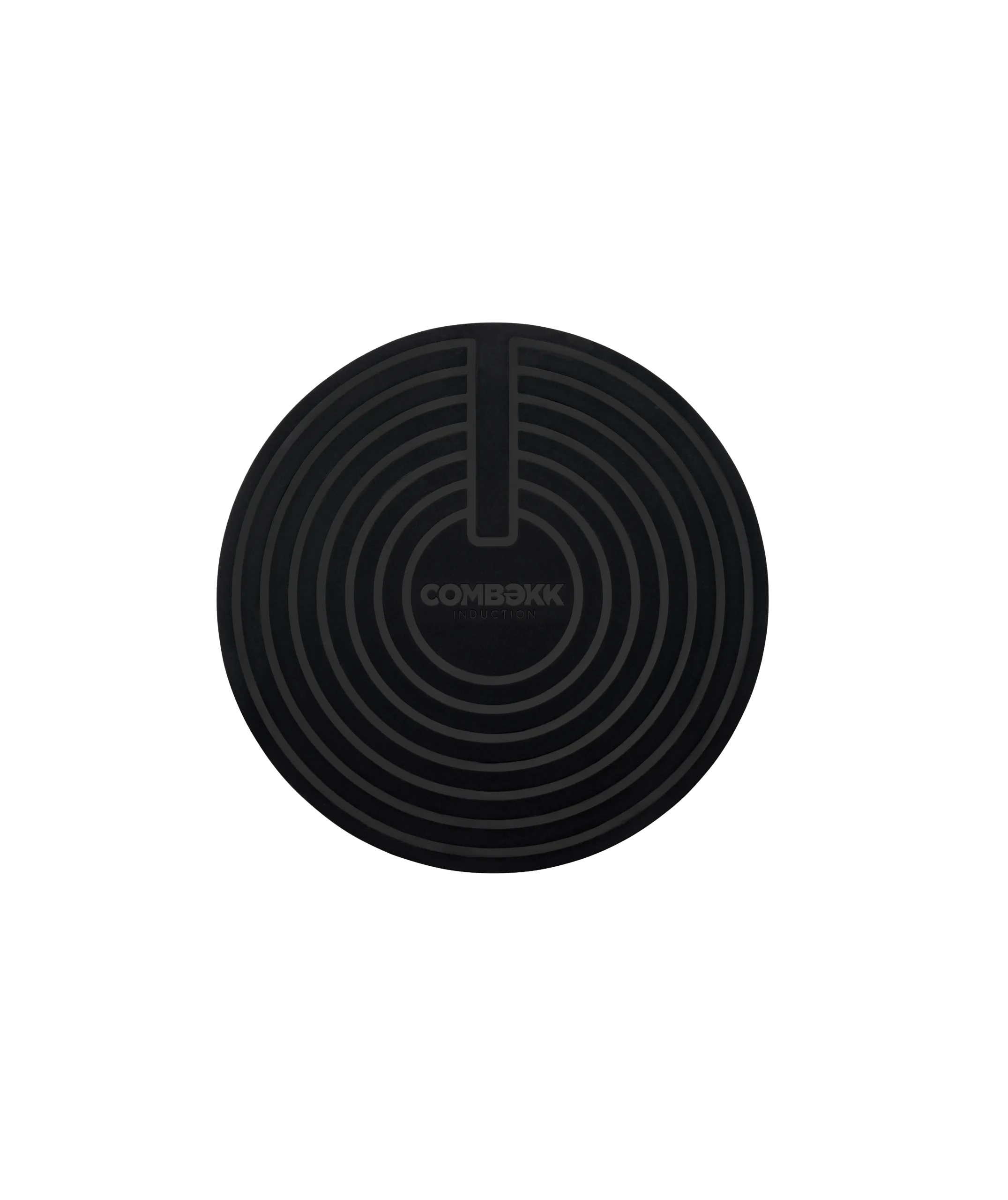
Utensils
Heat-resistant for both high and low temperatures, making them perfect for everyday cooking.
Storage
Innovative stackable design keeps your kitchen and freezer organized while saving valuable space.
Leather
Preparing
After removing the item from the packaging, hang it up for a while to allow it to return to its original shape and smooth out any wrinkles."
Cleaning
Avoid using excessive water or harsh cleaning agents, as these can damage the leather’s surface. If the leather gets wet, let it air dry naturally at room temperature.
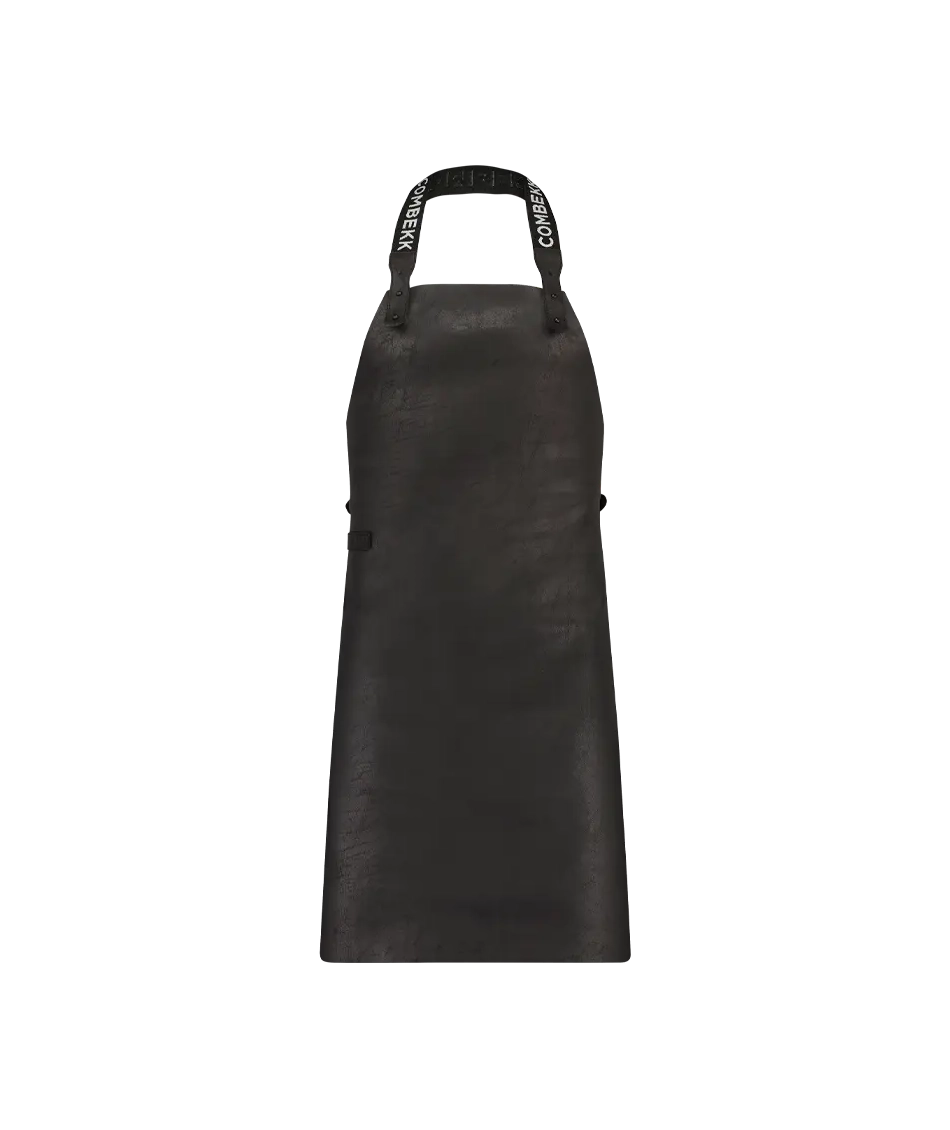
Utensils
Before use, it’s important to condition the leather at least once. A light application of leather conditioner keeps the material supple, prevents cracking, and enhances its natural finish.
Storage
Proper leather storage is key to preserving its shape, texture, and durability. Keep items in a cool, dry place away from sunlight, heat, and moisture.
